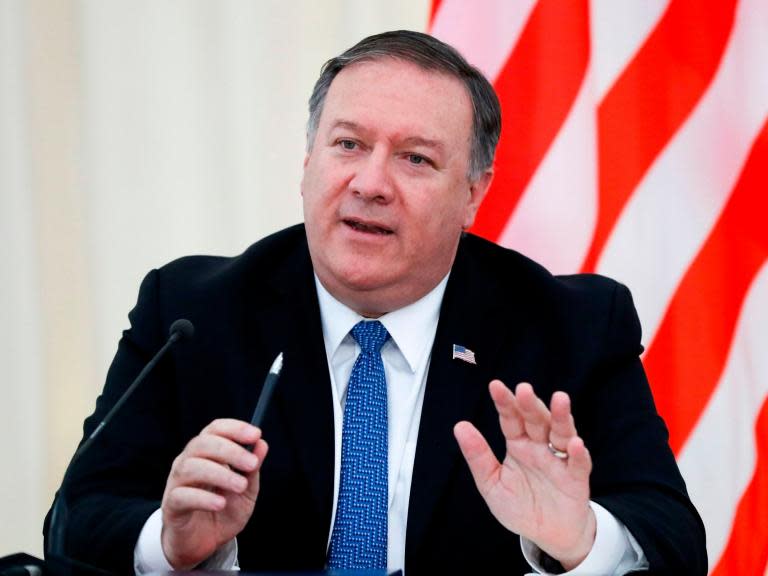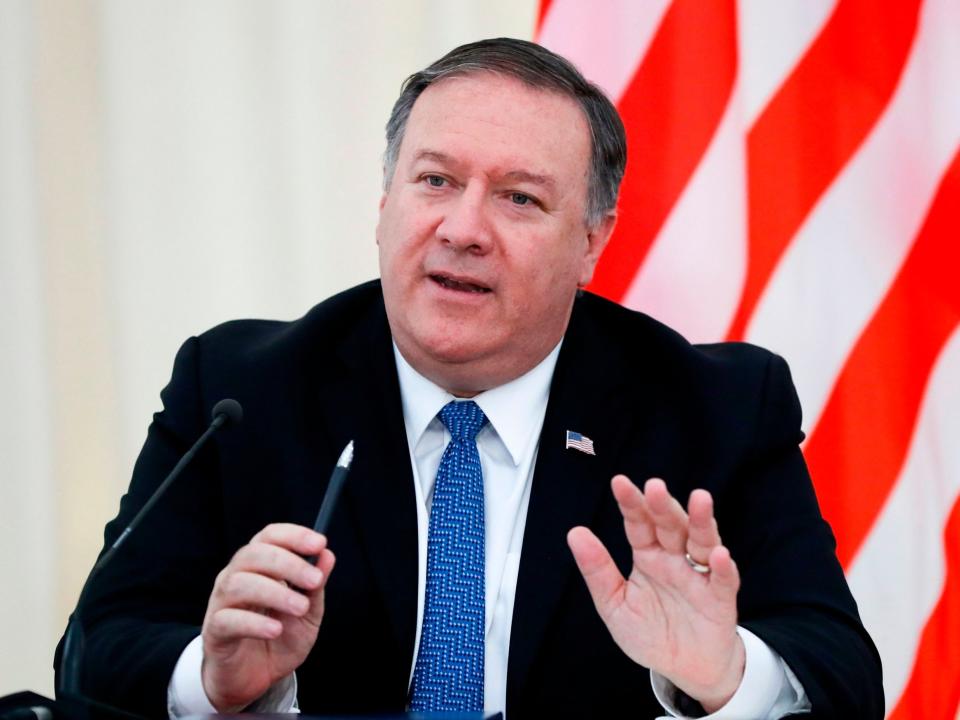US intelligence officials directly contradict Trump, saying no evidence al-Qaeda cooperating with Iran
There is no evidence to support the Trump administration’s claims that Iran is collaborating with al-Qaeda, US intelligence officers have reportedly told congress.
The American government has dramatically overstated ties between Tehran and the Islamist terror group, senior officials said during classified briefings on Tuesday, according to two US news outlets.
The assessment directly contradicts public statements by secretary of state Mike Pompeo and would undermine any legal case for going to war with Iran if tensions between Washington and Tehran continue to escalate.
Mr Pompeo told the Senate Foreign Relations Committee last month: “There is no doubt there is a connection between the Islamic Republic of Iran and al-Qaeda. Period. Full stop.
“The factual question with respect to Iran’s connections to al-Qaeda is very real. They have hosted al-Qaeda. They have permitted al-Qaeda to transit their country.”
But an official who briefed dozens of members of Republican and Democrat representatives on Tuesday said the US government had no evidence of operational coordination between the Iranian government – which is based on a Shia theocracy – and the Sunni terrorist group, according The Daily Beast, which cited three unnamed sources at the meeting.
US intelligence officials also told Time Mr Pompeo’s claims had been overstated.
“The secretary has blown the level of collusion between Iran and a few of the remnants of al-Qaeda way out of proportion,” one official said. “There have been occasional marriages of convenience, but there is nothing in the intelligence to suggest that any of them has been consummated in any grand anti-American alliance.”
The officials said that although a small number of al-Qaeda members took refuge in Iran after the US invaded Afghanistan in the wake of the 9/11 attacks, there was no evidence they had taken part in any joint operations with Tehran.
Isis, al-Qaeda’s descendent in Iraq and Syria, in fact took credit for a deadly 2017 attack on Iran’s parliament, the officials noted.
The US has designated Iran a state sponsor of terrorism since 1984, but that classification relates chiefly to Tehran’s support for Hezbollah in Lebanon and Palestinian groups in Gaza.
On al-Qaeda, the most recent State Department report on terrorism says only: “Iran remained unwilling to bring to justice senior al-Qa’ida (AQ) members residing in Iran and has refused to publicly identify the members in its custody. Iran has allowed AQ facilitators to operate a core facilitation pipeline through Iran since at least 2009, enabling AQ to move funds and fighters to South Asia and Syria.”
Intelligence and national security officials were summoned to Capitol Hill on Tuesday amid fears of a military confrontation in the Persian Gulf following weeks of escalating tensions between the Washington and Tehran.
Half of all Americans believe the US will go to war with Iran “within the next few years,” according to a Reuters/Ipsos public opinion poll released on Tuesday.
The survey found few US citizens would be in favour of a pre-emptive attack on the Iranian military. But four out of five believed American forces should respond if Iran attacked first.
Donald Trump has veered between bombast and conciliation on the issue, threatening on Monday to meet any provocations by Iran with "great force" before saying he was willing to negotiate.
After a day of closed-door briefings on Capitol Hill, Mr Pompeo and acting defence secretary Patrick Shanahan said their objective was to prevent further escalation of tensions.
"We're not about going to war," Mr Shanahan told reporters. He added: "Our biggest focus at this point is to prevent Iranian miscalculation.
"We do not want the situation to escalate."

 Yahoo News
Yahoo News 

